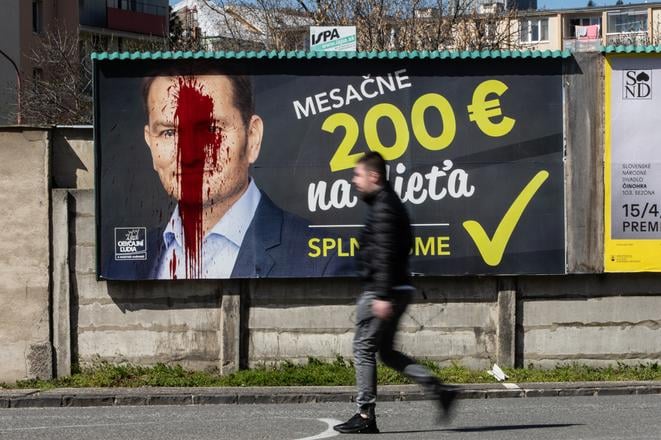Slovakia’s election campaign officially began a couple of weeks ago, but in reality it’s been under way for months.
For what seems like an eternity, Igor Matovič has been grinning at us from billboards and waving bar charts at TV interviewers, claiming credit for doling out €200 to some special interest group or other – or, more recently, promising to relieve ‘mamas’ of the duty to pay tax.
There is no grand fiscal strategy behind this: it’s a bribe. And in Matovič’s case, it comes from a man whose entire political persona is founded on his supposed opposition to corruption. Oh, the irony!
Will Slovaks sell their votes so cheaply? Sadly, many will – though OĽaNO has some stiff competition when it comes to this kind of bait-and-switch: Hlas’s Peter Pellegrini is already busy plastering the country with a half-offer of a “real” 13th pension payment.
Retail politics of this kind is hardly unique, but it requires some degree of financial illiteracy to work.
Take Matovič’s tax offer. The amount that most ‘mamas’ (howsoever defined) would save from an income-tax concession, once the inevitable bureaucratic hoop-jumping is completed, is relatively trivial: many pay little in income tax anyway. The state extracts far more in payroll taxes, duty on fuel, booze and cigarettes, and – above all – value-added tax (DPH).
Now if Matovič were talking about an exemption from DPH – which, by any definition, is a ‘tax’ – well, then we’d be talking. But no one is arguing for that.
(Just quietly, that’s probably a blessing: wide-ranging DPH concessions would torpedo the nation’s finances in short order, and probably fall foul of various EU rules to boot.)
But aside from mendacious, spendthrift politicians, the average voter is being short-changed in numerous other ways.


 Igor Matovič's controversial "€200 per child" policy appears as a delivered promise on a billboard in June 2023 ahead of the September elections. (source: SME - Jozef Jakubčo)
Igor Matovič's controversial "€200 per child" policy appears as a delivered promise on a billboard in June 2023 ahead of the September elections. (source: SME - Jozef Jakubčo)